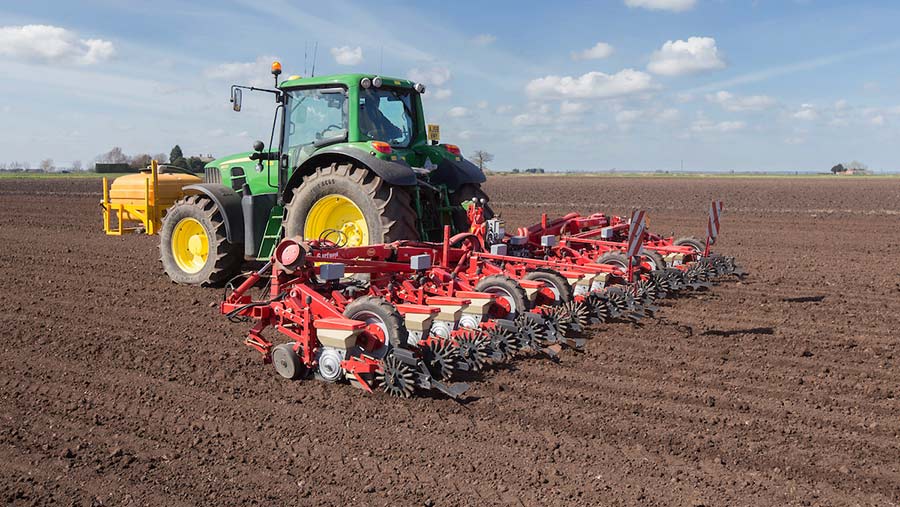Two new tolerant varieties added to sugar beet recommended list
 © Tim Scrivener
© Tim Scrivener Two new sugar beet varieties offering rhizomania disease and herbicide tolerance will be available to beet growers next spring after being added to the 2024 British Beet Research Organisation’s (BBRO) Recommended List (RL).
Osprey, from breeder SESVanderHave, is tolerant to the AYPR aggressive strain of rhizomania and joins the variety Philina as one of the two tolerant varieties for use where this form of rhizomania is present. Rhizomania can potentially reduce beet yields by up to 70%.
The variety Osprey showed a yield of 99.2% in the RL trials on sites free of AYPR compared with Philina on 97.5%, while the overall top yielder on the RL variety BTS1915 (without tolerance) was on 103.9%.
Osprey showed a sugar content of 16.9% compared with Philina on 17.1%.
See also: What the neonics authorisation means for sugar beet growers
Herbicide tolerance
The second newcomer is Smart Vesnica from breeder KWS, which is a variety tolerant to acetolactate synthase (ALS) inhibiting herbicides.
It showed a yield when using conventional herbicides of 94% compared with the only other ALS-tolerant variety on list, BTS Smart 9485, on 94.3%. Sugar content of Vesnica was 17.4% against 9485 on 16.9%.
It is expected that yields of Vesnica will be higher when the ALS herbicide system is used.
As these two varieties are new to the list, there is very limited data on their tolerances to foliar diseases, while neither of them has any restrictions on sowing date.
Overall, five varieties were withdrawn, which means that the 2024 RL comprises 19 varieties.
Mike May, chairman of the RL board, advises growers that before ordering any of the specialist varieties bred for characteristic such as AYPR tolerance, ALS herbicide tolerance and other special uses, they should discuss options with the BBRO and breeders who will have more information on their performance and use in the presence of a specific problem.
The RL trials in 2022 suffered from a very dry summer and so the yield of the control varieties listed in the 2024 RL table was 103.3 adjusted t/ha compared with 112 in 2021, with average sugar contents at 17.2%, similar to the previous two years.
None of the trials suffered significant damage from virus yellows or beet moth larvae.
